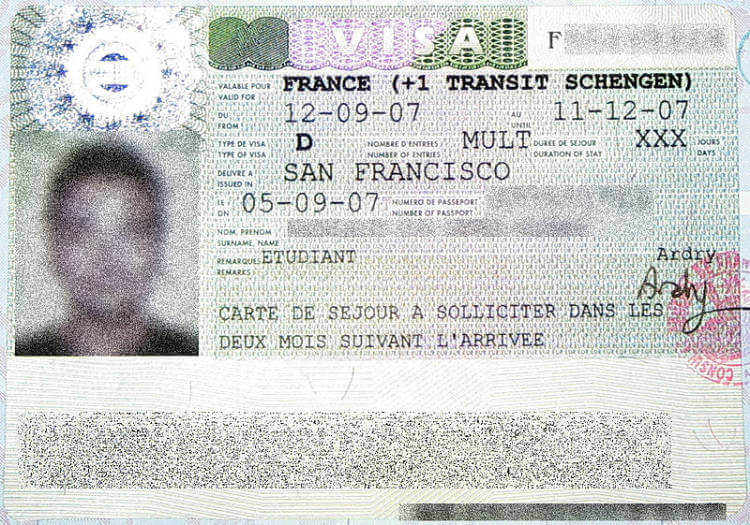France Visa And Residency Information- FAQs
Visa applications in France usually take about 15 days to process. However, in some cases, this time can be extended to 45 days if needed. Sometimes, the passport may be sent through the mail.
Top Destinations:
Whether you’re looking for fun and sun, a peaceful retirement, or the chance to earn some extra income, you’ve got a real world of opportunity open to you… In short, we’ve done our best to narrow down your best options, but only you can decide the right country for you.
Best For:
How Much Will It Cost You To Live Overseas?
The only honest answer is, we have no idea. And neither does anyone else. The only one who can answer that question is you. Here’s the most important thing to understand about budgeting your new life overseas…
Follow Us:
Join our Weekly Newsletter
Overseas Property Alert
Sign up for our weekly newsletter to receive expert insights on the best international real estate investment opportunities.
Upcoming Events
Access France Workshop
International Property Summit
Caribbean Virtual Conference
VIRTUAL
May 15, 2025
PANAMA CITY, PANAMA
JUNE, 2025
VIRTUAL
July 17-19, 2025
Contact Our Events Team
Reach us with your questions by email at: events@liveandinvestoverseas.com
Unlock The World
Overseas Havens Reports
Conference Kits
Lahardan Books
Our Customer Service team is here to assist with any questions or concerns CustomerService@LiveandInvestOverseas.com
Top Destinations:
Whether you’re looking for fun and sun, a peaceful retirement, or the chance to earn some extra income, you’ve got a real world of opportunity open to you… In short, we’ve done our best to narrow down your best options, but only you can decide the right country for you.
Best For:
How Much Will It Cost You To Live Overseas?
The only honest answer is, we have no idea. And neither does anyone else. The only one who can answer that question is you. Here’s the most important thing to understand about budgeting your new life overseas…
Follow Us:
Join our Weekly Newsletter
Overseas Property Alert
Sign up for our weekly newsletter to receive expert insights on the best international real estate investment opportunities.
Upcoming Events
Access France Workshop
International Property Summit
Caribbean Virtual Conference
VIRTUAL
May 15, 2025
PANAMA CITY, PANAMA
JUNE, 2025
VIRTUAL
July 17-19, 2025
Contact Our Events Team
Reach us with your questions by email at: events@liveandinvestoverseas.com
Unlock The World
Overseas Havens Reports
Conference Kits
Lahardan Books
Our Customer Service team is here to assist with any questions or concerns CustomerService@LiveandInvestOverseas.com
THE 10 BEST PLACES TO RETIRE IN 2025

PLUS: A SPECIAL BONUS DESTINATION
We Value Your Privacy! We will not share your email address with anyone else, period.
Home » Best Countries To Live, Invest, And Retire Overseas » Europe » France » France Visa And Residency Information
Spending Time In France: French Visas, Residency, And Citizenship
Learn more about this and other countries in our free, daily Overseas Opportunity Letter. Simply enter your email address below and we’ll send you our FREE REPORT: The 10 Best Places To Retire In 2025

Getting started with your application for a French visa is fairly straightforward. With a little time and patience and providing you follow the correct procedure you should be able to obtain a French visa without difficulty.
This guide on French visas provides information on all the main visas in France and how to apply for them.

Reviewed By Kathleen Peddicord
Kathleen is the Live and Invest Overseas Founding Publisher. She has more than 30 years of hands-on experience traveling, living, and buying property around the world.


Start Your New Overseas Life Today
A world full of fun, adventure, and profit awaits! Sign up for our free daily e-letter, Overseas Opportunity Letter, and we’ll send you a FREE report on the 10 Best Places To Retire In Style Overseas Today 2024
We Value Your Privacy! We will not share your email address with anyone else, period.
U.S. and Canadian citizens are automatically granted a 90-day tourist visa when entering the country for business or personal travel.
In English this is referred to as a “short-stay” visa (type C), but is officially called a Visa de court séjour Schengen, a short-stay Schengen visa, as it allows you 90 days within the Schengen Zone at large, not just France.
Read more details about the allowances and limitations of this visa on France’s official government administration site.
It is nearly impossible to obtain or change visa status while in France, so if you intend to stay longer than 90 days, you’ll need to request permission to stay from the French consulate before leaving your home country.
You do not need a France visa to stay in France (only) for up to 90 days if you have a passport from the United States of America and you are a tourist, or are there for business or to visit family.
This exemption covers:
Start Your New Life Today, Overseas
France is party to the Schengen agreement, which eliminates all internal border controls between the participating countries:
Austria, Belgium, Czech Republic, Denmark, Estonia, Finland, France, Germany, Greece, Hungary, Iceland, Italy, Latvia, Liechtenstein, Lithuania, Luxembourg, Malta, Netherlands, Norway, Poland, Portugal, Slovakia, Slovenia, Spain, Sweden, and Switzerland.
2. Once you are in a Schengen country, you do not show your passport when you cross the borders.
Most importantly, if you are coming for business or tourism, you don’t need to request a visa for the initial entry into the Schengen area, but you must have a passport valid for three months beyond the proposed stay (e.g., for a two-week trip, the passport must be valid for four months; for a two-month trip the passport must be valid for five months).
France does not let you change your visa status while in the country, so you must request permission to stay past the 90-day tourist visa before you leave your home country.
U.S. and certain other citizens can begin the application process online here.
To apply for a long-stay visa (type D), you must make an appointment at the French consulate nearest you in your home country—generally you are required to submit the application in person, but some accept applications via mail. These can be requested for stays of four months up to a year.
The approval process can take anywhere from a couple weeks to several months. You can track the visa processing progress here.
There are several types of long-stay visa:
Visa De Long Séjour Temporaire: Valable 4 À 6 Mois (Temporary Long-Stay Visa: Valid For 4 To 6 Months) This visa allows for a stay of four to six months and you do not need to apply for a residency permit once in country under this visa.
Regardless of which option you go for, when you apply at the consulate you’ll need the following documents:
While these general documents will likely be required by all, it’s possible your personal situation will require additional documents.
France immigration recommends always getting in touch with your consulate before applying to verify the list of documents you should provide. Find your consulate here.
All documents must be translated by a certified translator and have to be presented in original, together with one copy.
Start Your New Life Today, Overseas
In January 2017, the French government announced the development of a new French Tech Visa for foreigners living outside the EU with exceptional tech expertise, entrepreneurs in the tech field and venture capitalists willing to invest in French tech firms.
Technology companies are doing well in France and employers are finding it more and more difficult to hire qualified employees. The French Tech Visa is designed to foster tech growth and provide talented personnel for the French tech industry.
After living in France for five years on a Long-Stay Residency Card, you may apply for a Permanent Residency Card; there are two types, known locally as a carte de séjour or carte de résident. Most foreigners will be given a carte de séjour. The Permanent Residency Card is valid for 10 years and is automatically renewable.
To apply you must submit your passport with your long-stay visa, plus a photocopy of the title page and the French visa page. You also need to submit three passport photos, proof of financial resources, proof of medical insurance, a medical certificate completed by a doctor approved by the French consulate, and proof of lodging in France. The medical certificate must be translated.
The Permanent Residency Card is issued only in France.
France recognizes dual citizenship.
French citizenship can be obtained after five years of permanent residency.
Naturalization will only be successful for those who are judged to have integrated into French society (i.e. by virtue of language skills and understanding of rights and responsibilities of a French citizen, to be demonstrated during an interview at the local préfecture), and who show loyalty to French institutions.
France recognizes both jus soli (with some additional requirements) and jus sanguinis.
Any child born to at least once French parent is automatically a French citizen, even if born abroad.
Children born in France to legal residents of France will be considered foreign until they reach the age of majority (18), but obtains French citizenship if the child has been resident in France for at least five years since age 11.
The child can opt to take on French citizenship between 16 and 18 if they have been resident in France for at least five years since age 11—this is by request and application from the child only.
Plus, a child can become a citizen between 13 and 16 if it’s requested by the parents and the child has been resident in France continuously since age 8.
To apply for a visa, use the term “Consulate General of France” to do an online search. Each Consulate manages a region, and you will need to determine which office is responsible for your state.
Applying for a visa takes two-to-four weeks. It is important to have a plan in place for your trip. Once issued, your visa cannot be modified.
French visa requirements are very specific. Here are some—not all—of them to give you an idea:
Start Your New Life Today, Overseas
It can be easier to gain permanent residency in France than you might imagine. Like many countries in Europe, France grants residency to foreigners who can prove they can take care of themselves (that is, pay their own bills and not be a burden on the state).
To be granted a permanent residency in France, you must live there for five continuous years. Certain situations, such as marriage to a French national or obtaining a degree from a French university, can shorten that time. After five years, you will be able to apply for a ten-year, renewable permanent residency.
You may also apply for citizenship in France after that five-year residency. France allows dual citizenship so you can continue to be a citizen of your current country. What are the differences between a residency in France and French citizenship?
Although both give you the right to healthcare, education, and the ability to work in France, only citizenship confers the right to vote and hold public office. In addition, French citizenship automatically includes citizenship in the European Union (EU).
Obtaining a citizenship in France will require you to complete the appropriate paperwork, pay the fee(s) and undergo an interview to determine:
Spending an extended period of time in France is an incredible opportunity, but navigating French visa requirements can be a challenge. When you are ready, our best advice is to visit the Consulate General’s website for your state. That website will be able to answer your questions with the latest information and guide you through the process.
The truth is, becoming a resident of this country isn’t necessarily the challenge. The challenge is facing the tax liabilities that can ensue. However, you can plan for and mitigate your tax burden as a full-time foreign resident in France if you get the right help from the start.
Residency in France can lead to a second passport and dual citizenship in this country.

Reviewed By Kathleen Peddicord
Kathleen is the Live and Invest Overseas Founding Publisher. She has more than 30 years of hands-on experience traveling, living, and buying property around the world.


Start Your New Overseas Life Today
A world full of fun, adventure, and profit awaits! Sign up for our free daily e-letter, Overseas Opportunity Letter, and we’ll send you a FREE report on the 10 Best Places To Retire In Style Overseas Today 2024
We Value Your Privacy! We will not share your email address with anyone else, period.
Visa applications in France usually take about 15 days to process. However, in some cases, this time can be extended to 45 days if needed. Sometimes, the passport may be sent through the mail.
 . '
. '
 . '
. '
 . '
. '
 . '
. '
 . '
. '


We Value Your Privacy! We will not share your email address with anyone else, period.
As seen in

© 2008 – Live and Invest Overseas™ – All Rights Reserved.
Sign up to receive the FREE daily e-letter, Overseas Opportunity Letter and we’ll immediately email you our editors’ latest research report…
BEST PLACES TO RETIRE
FREE REPORT:
Sign up for FREE and learn how to live the good life on a modest budget, find bargain property, and more. Plus, check out our free report on the 10 BEST PLACES TO RETIRE.
RETIRE OVERSEAS AND LIVE LIKE ROYALTY
Top Countries
Budgets
Affordable
Resources
Real Estate
Overseas Property Alert
How To Become Independently Wealthy And Fund The Lifestyle Of Your Dreams
Buying Real Estate For Cashflow
Discover tips and strategies used by global property investing veterans
Explore Our Latest Posts
Learn how to invest and purchase property abroad…
Conferences
ACCESS FRANCE WORKSHOP
INTERNATIONAL PROPERTY SUMMIT
CARIBBEAN VIRTUAL CONFERENCE
Contact Our Events Team:
Toll-Free U.S. and Canada:
1 (888) 627 8834
From Outside North America:
1 (443) 599 1221
Working Hours
Monday – Friday 08:00 am – 17:00 pm EST.
Reach us with your questions by email at: events@liveandinvestoverseas.com
Store
Overseas Havens Reports
Conference Kits
Lahardan Books
Subscriptions
Free Report
THE 10 BEST PLACES TO RETIRE IN 2025

Sign up to receive the FREE daily e-letter, Overseas Opportunity Letter and we’ll immediately email you our editors’ latest research report…
We Value Your Privacy! We will not share your email address with anyone else, period.
Follow Us:
© 2008 - Live and Invest Overseas - All Rights Reserved.